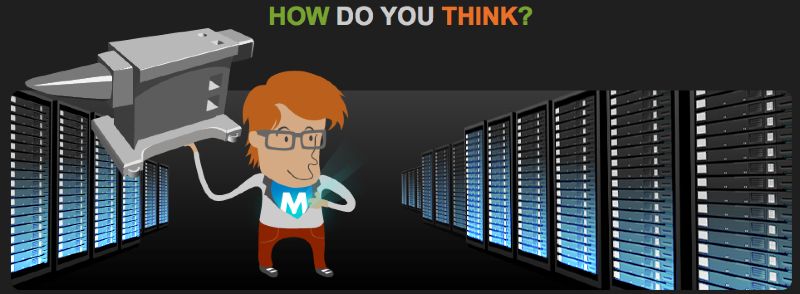Corporate Partnerships and Mainframe Skills
In discussions on efforts to combat the impending mainframe skills shortage, programs such as the IBM Academic Initiative and the Master the Mainframe Contest typically play center stage. The Millennial Mainframer team has already written about the positives and negatives in the design and execution of these programs, but as with most articles on these topics, we have largely hitherto neglected discussing one of the most critical determinants of the success of training and hiring new Millennial Mainframers: corporate partnerships.
Some quarters seem to have a "Field of Dreams" attitude towards mainframe education. The thought is that if IBM creates new and fresh (and preferably free) mainframe training materials presented in a millennial-friendly way, then bright young minds will become Millennial Mainframers to take the place of retiring mainframers. In other words, "if you build it, [they] will come."
However, based on my experience designing an IBM Academic Initiative course, I've learned that this is a fallacious line of reasoning because universities are very sensitive to the utility of new courses they introduce, particularly those that are tied to specialized proprietary technologies, like the IBM mainframe. For a new course to be approved by a department chair, a certain number of students must sign up to generate enough tuition revenue to cover the expense of offering the course. If insufficient students sign up, then the course is cancelled. Because universities exist off student tuition, they are incented to offer the sorts of courses that students want to take. The central thought problem with solving the mainframe skills shortage via the IBM Academic Initiative is therefore the following question:
Why would an eighteen to twenty-one year old student want to pursue coursework in mainframe technologies rather than courses in web design, mobile app development, etc.?
Based on the experiences of successful IBM Academic Initiative universities, the resounding answer to this question is that a certain type of college student chooses to study mainframe technologies when they perceive that graduates that have taken mainframe courses have achieved higher job placement rates and satisfaction than students that have pursued other specializations. This means that the success of any mainframe training program is 100% tied to its ability to train and place students in high-paid technical positions at a rate that exceeds the career prospects of other technical specializations. Absent external support, this is a tall order for an educator of any kind, particularly given the general ignorance about mainframe computing among millennials and Computer Science academics.
I therefore propose that the only way to ensure this sort of success is through deep partnership between training programs and the Fortune 1000 corporations that will ultimately need to hire Millennial Mainframers to keep their critical IT infrastructure running. By demonstrating a high-level commitment to the mainframe for the foreseeable future and directly supporting mainframe courses and training programs through joint marketing, internships / co-ops, and a commitment to hire graduates that complete these courses, leaders of the Fortune 1000 companies that depend on mainframes can shape the thinking of millennials and encourage them to consider becoming a Millennial Mainframer.
I recently learned that MetLife has done precisely that through their collaboration with the IBM Master the Mainframe Contest. Much of this work has been spearheaded by a forward-thinking MetLife Vice President named David Ditillo. Recognizing MetLife's decision to build a technology center in Raleigh and the need to begin to build a pipeline of technology talent, David reached out to the IBM Academic Initiative to learn how MetLife could partner with IBM's efforts to help ensure a consistent pipeline of Millennial Mainframers.
A recent MetLife video on this collaboration indicated the following:
- The "Mainframe will continue to be the bedrock of technology at MetLife; the foundation on which innovation, technology, and business grows."
- "The Mainframe is a Powerhouse," which suggests that "if you're into power computing and IT, then the mainframe is the place that you need to be!"
- MetLife envisions that technological excellence will be driven by "bringing together Mainframe and Emerging Technology and taking those solutions to places never though possible."
- "The mainframe is a dynamic platform… [that] IBM is evolving to be mainstream, for instance… [through] Java."
Most importantly, David Ditillo expressed the thought that as "the future of technology," the training and recruitment of Millennial Mainframers is critical to driving the next generation of innovators capable of synthesizing mainframe and emerging technologies into solutions to allow them to leapfrog over their competitors. For this reason, David and the rest of the MetLife team "would love the opportunity to have you part of our MetLife family." Indeed, MetLife has already begun hiring Millennial Mainframers. One of these was Natalie Chalco, a recent hire that explained her decision to join MetLife as follows:
"Right now MetLife Technology is undergoing a huge change. They are becom[ing] leading edge. I have the opportunity to get my hands in. Being new the field, it was a great opportunity to me."If you are interested in learning more about mainframe opportunities at MetLife, I would highly suggest checking out their synapse web site. The design for the site is fantastic, and I highly approve of the way that they portray their mainframer:

This post was originally hosted on the Millennial Mainframer blog